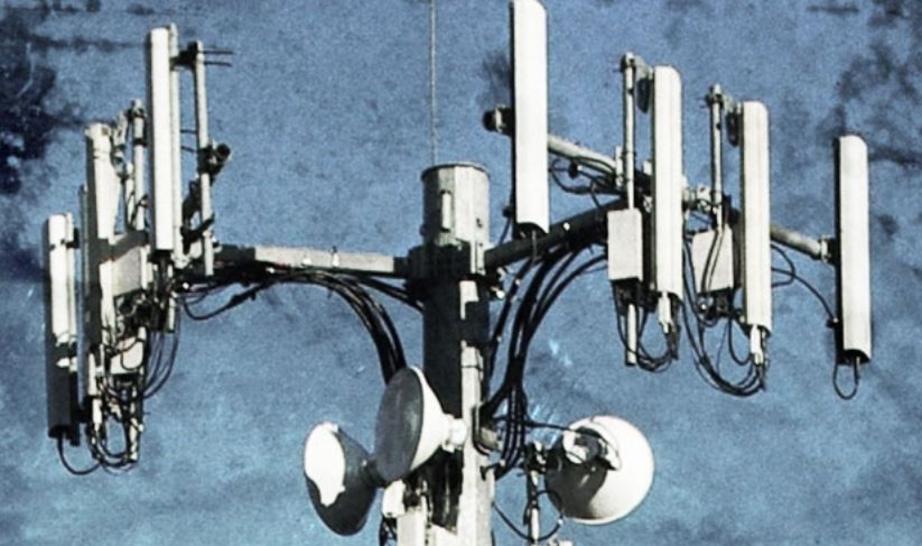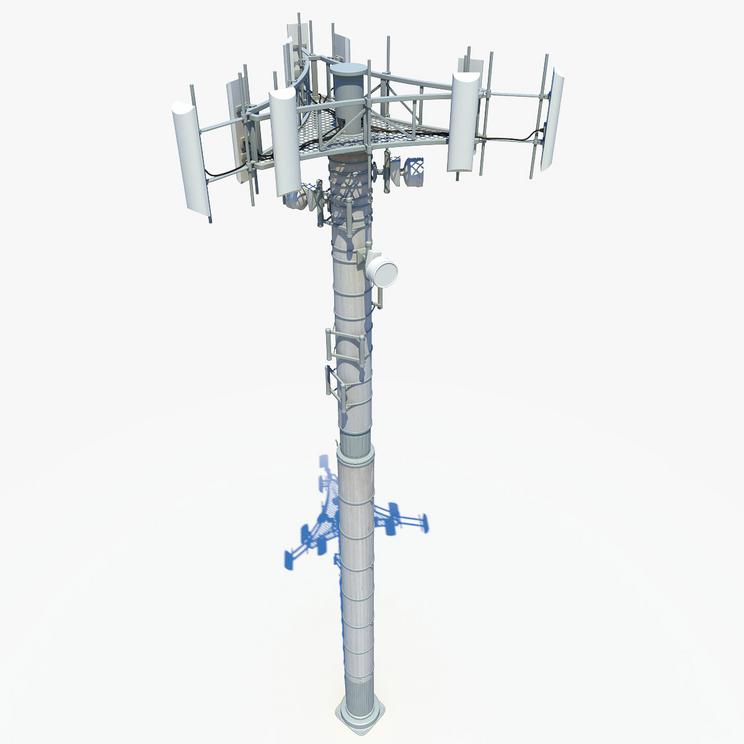Individual cell towers in neighborhoods and on community streets requested by industry
The Federal Communications Commission (FCC) is seeking the public’s comments about an issue of growing serious concerns for a great many informed consumers, especially those who understand the hidden dynamics of microwaves and their non-thermal radiation waves, regarding the placement of “small cell infrastructures”, i.e., small cell towers just about everywhere, including next to your home either on your street or within your immediate neighborhood!
The Wireless Telecommunications Bureau (WTB) invites public input on potential Commission actions to help expedite the deployment next generation wireless infrastructure by providing guidance on how federal law applies to local government review of wireless facility siting applications and local requirements for gaining access to rights of way. [….]
Although the facilities used in these networks are smaller and less obtrusive than traditional cell towers and antennas, they must be deployed more densely – i.e., in many more locations – to function effectively. As a result, local land-use authorities in many areas are facing substantial increases in the volume of siting applications for deployment of these facilities. This trend in infrastructure deployment is expected to continue, and even accelerate, as wireless providers begin rolling out 5G services. [1] [CJF emphasis added]

Folks, if you aren’t aware, the U.S. Air Force classifies the 5G range frequencies “as a weapon”!
Readers can find more information in Katie Singer’s newsletter “An Electronic Silent Spring” January 2017 issue.
More information about 5G is found at “8 Ways 5G and the Internet of Everything Will Impact Our Lives.” I point readers to the Health page, which I can’t encourage you enough to study.
All the ‘smart’ electronics and gadgets, especially smart phones, consumers have invited into their lives and so readily accepted as ‘benign’, while becoming ‘addicted’ to them, actually are putting more demands on resources for energy—how do you think all those cell towers operate? Thus the oxymoron about smart meters to conserve energy; no, they are tracking devices!
All the smart appliances (cell phones, Wi-Fi, etc. plus stingray surveillance tracking towers law enforcement uses without legal warrants — talk about Constitutional rights; where are the protesters regarding that) interact with respective networks, especially AMI Smart Meters, which utilities retrofit onto electric, natural gas and water services just about everywhere.
We now are living in a SEA of electronic pollution no one can see or smell, but millions of people experience the adverse health effects from non-thermal waves identified as electromagnetic hypersensitivity (EHS) or idiopathic electromagnetic intolerance (IEI) by the World Health Organization and that is the diagnostic term the medical profession uses.
Are parents aware that some children’s ‘smart’ toys are ‘spying’ on their kids?
Consumerist on its webpage “These Toys Don’t Just Listen To Your Kid; They Send What They Hear To A Defense Contractor” states, “When users first set up the app for their toy, they may be sharing data you don’t want shared.” I bet readers didn’t know that!
Furthermore, how do parents feel about your child’s playtime being monitored by a defense contractor? Is it a “Big Brother” world or are we living in a fascist-quasi-totalitarian society run by vested industry interests with solid backing from government regulations and funding?
Consider this statement by Norm Alster of the Edmond J. Safra Center for Ethics, Harvard University:
Industry control, in the case of wireless health issues, extends beyond Congress and regulators to basic scientific research. And in an obvious echo of the hardball tactics of the tobacco industry, the wireless industry has backed up its economic and political power by stonewalling on public relations and bullying potential threats into submission with its huge standing army of lawyers.” [2]
Katie Singer’s website [3] suggests:
Call your Congressional reps and voice opposition to the MOBILE NOW ACT introduced on the first day of the 115th Congress by Sen. John Thune (R-S.Dakota). This Act proposes reforms to boost the development of 5G wireless broadband by making 500 MHz available, speeding up 5G infrastructure, etc. Learn more [here and here].
IEEE Spectrum claims on its website “What counts as 5G is not just a theoretical debate. It could have a real impact on the trust that consumers place in carriers.” Read that last sentence again and ponder why that statement is made, I suggest, if there are no ‘problems’ involved.
Now consider this from the above website:
Radio waves in the sub-6 GHz range are considered the most desirable among carriers for delivering cellular signals because they can penetrate materials such as concrete and glass. Two ranges in particular—frequencies around 800 megahertz and 1.9 GHz—have long dominated the U.S. cellular landscape. [4]
[Penetrate concrete and glass! What do they do to skin, bone, and internal human organs, especially the human brain?]
But these frequencies are becoming crowded as more users consume more data on more devices. And a bevy of other consumer technologies including Wi-Fi, Bluetooth, microwave ovens, and satellite radio operate at frequencies between 1.9 GHz and 6 GHz. So carriers have begun to browse higher frequencies for open bands that they can co-opt for cellular use. [4]
[CJF emphasis added]
[Folks, consumer addictions to ‘smart’ gadgets are going to fry our brains. What will you do about that? Is that when humans will be retrofitted with computers in their brains?
That’s a project ‘smart’ technologies are working on; it’s called transhumanism.]
The microwave industry wants to put Wi-Fi (5G) in the sky, e.g., Google’s “SkyBender”.
Google is expanding its ambitions for WiFi in the sky with Project SkyBender, which aims to deliver 5G wireless Internet from solar-powered drones, according to a report in The Guardian.
Current Wi-Fi signals start transmitting at 2.4 gigahertz (GHz) and up to 5 GHz for SHF ISM radio bands.
Lastly, the FCC is asking for consumer comments about putting “small infrastructures” in your community—maybe on your front lawn, backyard, or anywhere they decide, and you have no say—just like with utility smart meters in many places. However, FCC is asking for consumer comments regarding WT Docket No. 16-421, which I heartily suggest you make February 6 to March 8, 2017, the final due date.
Here is the FCC Docket to read. At the end of page 15 on that website, readers will find instructions for various ways to submit comments with contacts and addresses, including electronic submission.
Filings can be sent by hand or messenger delivery, by commercial overnight courier, or by first- class or overnight U.S. Postal Service mail. All filings must be addressed to the Commission’s Secretary, Office of the Secretary, Federal Communications Commission.
Please rethink all the above and thank you.
By the way, a bill, “An Act relative to best management practices for wireless in schools and public institutions of higher education,” (HD 2454) recently was introduced into the Massachusetts legislative hopper by House of Representatives member Carolyn C. Dykema, which indicates a growing awareness and concern on the part of those in governance about the adverse health issues and problems with and from microwaves, especially Wi-Fi, and in schools in particular.
How are children with learning disabilities caused by adverse reactions to neurotoxic chemicals in vaccines impacted with Wi-Fi in schools and learning centers?


